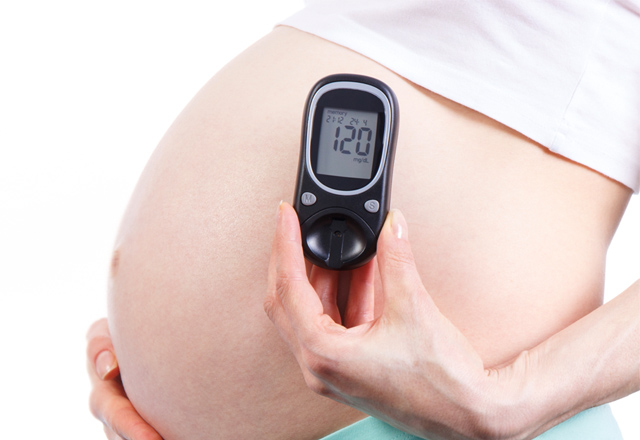Does periodontitis increase the risk of gestational diabetes
PD Dr. Kristina Bertl, PhD MSc MBA
The links between diabetes mellitus and periodontitis are very well described and documented in the literature. A specific malfunction in the sugar metabolism can occur during pregnancy, which is referred to as gestational diabetes. In Austria, around 5–10% of all pregnant women are affected by gestational diabetes. Gestational diabetes increases the risk of complications during pregnancy, such as premature birth. At the same time, women who are affected also have an increased risk of developing type 2 diabetes mellitus after pregnancy.

Since periodontitis can clearly have an effect on type 2 diabetes mellitus, it is naturally worth asking whether the presence of untreated periodontitis in pregnant women also increases the risk of gestational diabetes? This question was examined in a recently published study by a group of Chinese researchers (Liu et al. 2022).
The study included a total of 3523 women in the 1st to the 4th week of pregnancy who were split into 3 groups:
- Periodontally healthy women (n = 2255)
- Women with periodontitis (at least stage 2 or higher; n = 749), who refused periodontal treatment
- Women with periodontitis (at least stage 2 or higher; n = 519), who agreed to periodontal treatment
In the 24th–28th week of pregnancy, an oral glucose tolerance test was carried out on all participants, with intriguing results. Women with no periodontitis had an incidence of gestational diabetes of 4.8%. This incidence was higher in the two groups of women who had periodontitis. While those women with periodontitis who agreed to treatment had an incidence of 7.3%, the incidence in women who did not receive periodontal treatment was over 10% (11.2% to be precise). Therefore, women with periodontal disease who had not received treatment had an incidence rate for gestational diabetes more than twice as high as those who were periodontally healthy. Accordingly, a more complex statistical analysis showed that periodontitis leads to a significant increase in the risk of gestational diabetes. Other factors that led to a significant increase in the risk of gestational diabetes in this population included the Body Mass Index (BMI), high blood pressure, and known cases of diabetes in relatives.
This data once again underlines the importance of good communication between gynaecologists, midwives and the dental team!
References
- Liu, F., Sui, W., Zhou, Z.-F., Mi, Y., He, T.-Q., Li, Z.-B., Hong, Y.-L., & Chen, F.-M. (2022). Development of gestational diabetes mellitus in women with periodontitis in early pregnancy: A population-based clinical study. Journal of Clinical Periodontology, 49(2), 164–176. https://doi.org/10.1111/jcpe.13578
Mehr Informationen zu Schwangerschaftsdiabetes: https://www.gesundheit.gv.at/krankheiten/stoffwechsel/diabetes/schwangerschaftsdiabetes


Commenti